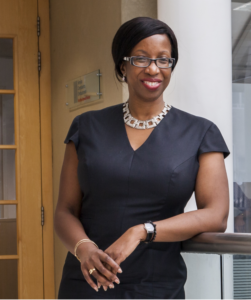This is an intensely personal piece, but as a Black British woman, sometimes the best way to make observations on a wider issue is to illustrate it with, and from, a particular perspective. That is why I am writing this.

This is an intensely personal piece, but as a Black British woman, sometimes the best way to make observations on a wider issue is to illustrate it with, and from, a particular perspective. That is why I am writing this.
It has been 2 weeks since the killing of George Floyd. After 3 memorial services across the United States, today is his funeral, after which he will be laid to rest next to his mother – who he called out for as he knew he was dying. He died before our eyes in a truly horrific way. Across America, and around the world, we have seen a mass outpouring of grief and anger. Not just for his death, as shocking and horrendous as that was – but because it wasn’t the first. Perhaps especially because it wasn’t the first.
Some people are asking, “Why are you, as a Black British person, so affected by this? After all, it happened in the U.S.” Because it’s clear, both from the hundreds of thousands of people that have demonstrated peacefully in the UK and around the world and from individual conversations I have had, that this is triggering, an emotional reawakening for many Black people. Most Black people will, thankfully, not be the victim of police brutality or a physical racist attack but the overwhelming majority of us have suffered some form of injustice linked to race.
As a Black woman, I am fortunate to have achieved much in my professional life – as a barrister, an Ombudsman and a judge. Unbelievably, people suggest that is proof that there is no racism. I’m sure they mean well (and it makes them feel better) but what I have achieved has been in spite of that. Still, others believe my professional status protects me from racism. They are completely misguided.
Let me say right away that I know many people have experienced even more distressing examples of racism than those I have listed below, but here are just 3 examples:
- Someone calling me the N-word to my face.
- A taxi driver deliberately refusing to pick me and my elderly mother up after an evening at the Globe Theatre
- When I was working abroad, having flown back for my father’s funeral who had died two days before, my brother and I were stopped by police for no reason driving back from Heathrow. An all too familiar story for many Black people, especially men.
It is right that the history of Black people in the UK (which, incidentally, predates Windrush) is different to that of Black people in the US. However, when you get Black British people and African-Americans in the same room, we find that our experiences are distressingly similar.
Worse are the microaggressions, which are frequent, deeply corrosive and even damaging to mental health. This can include silence on this particular matter which, along with the pandemic, is the biggest news story currently in the world.
None of this is designed to make White people feel guilty or targeted. Indeed, the one thing that has been clear from all of these protests in every country in which they have taken place is how racially diverse the protests have been. As they should be. Anyone with even a shred of humanity would have been completely sickened by what they saw on that video. But non-racist is not the same as anti-racist. Non-racism is Version 1. Anti-racism is Version 2 – and beyond as it is, and should be, organic and ever-changing and developing, not moribund and fixed. It will make for uncomfortable conversations, particularly around the issue of White privilege. But these honest conversations are necessary, especially if you are confronted with having to think about the issue of race in a much deeper way than you have ever had to before; to get a glimpse into the daily reality of Black people in the UK.
When he left his home that morning, George Floyd had no idea he would never return. At the end of the day, he was a real person – a much loved brother, good friend and a father. In a now heart-breaking video, his 6-year-old daughter Gianna said: “My daddy will change the world”. Sadly he won’t eradicate racism but he has moved the dial on this worldwide. He is now a part of American, and world history. In that way, he has indeed changed the world. But what a terrible, terrible price he has paid. We cannot, all of us, let that be in vain. #blacklivesmatter.
Nicola Williams
Service Complaints Ombudsman for the Armed Forces